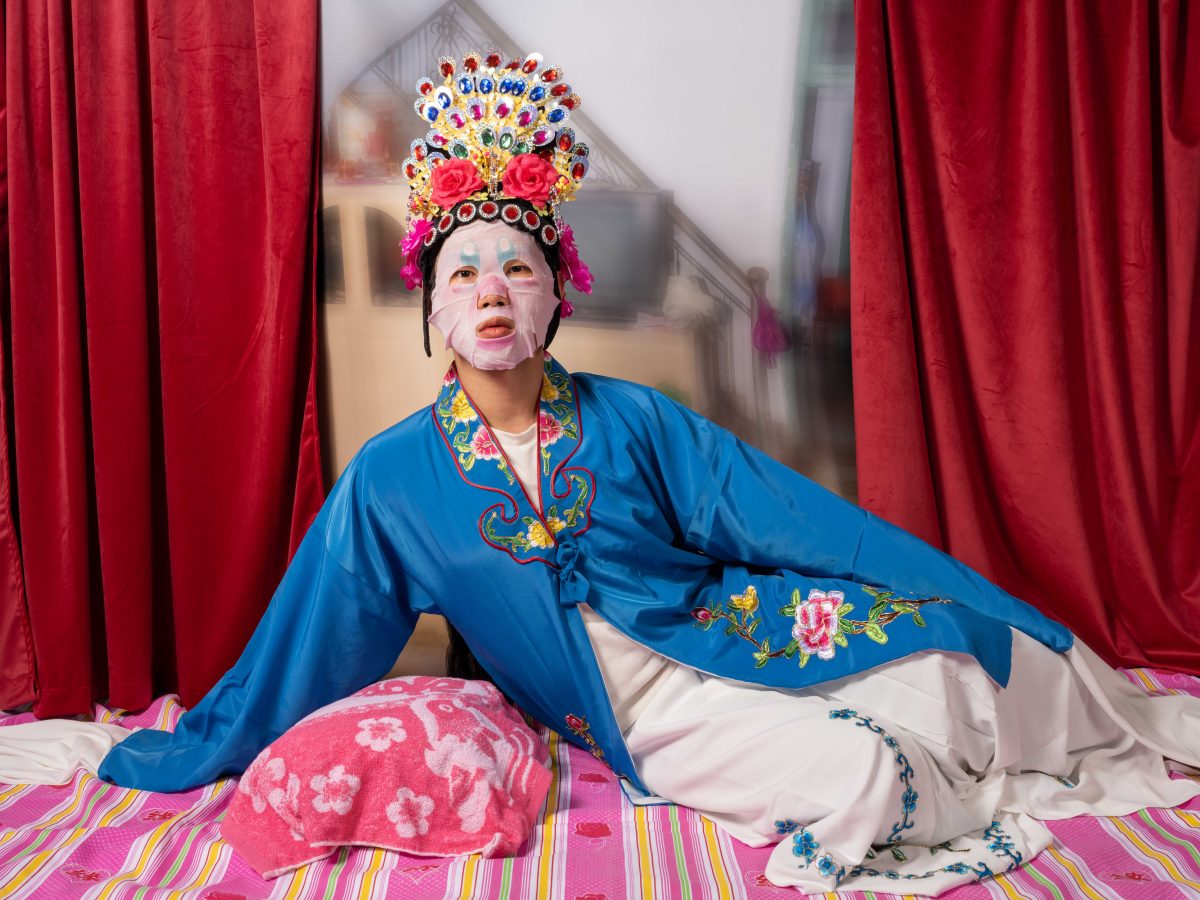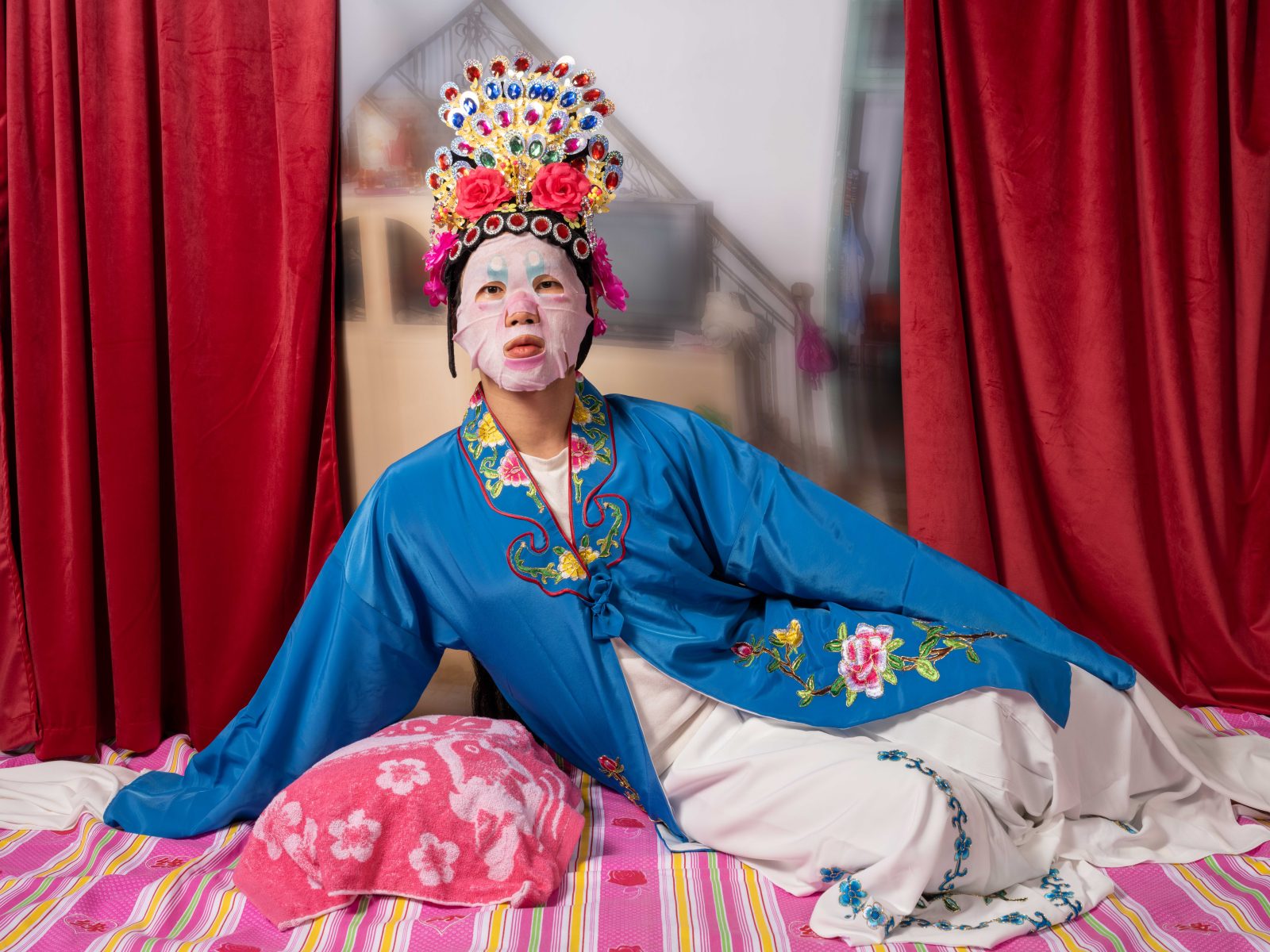From issue: #23 Seen/Unseen
Each issue we ask the Photography+ community to submit photographs, and this time we asked readers for work relating to the theme Seen/Unseen. We are delighted to publish the selected image, Revisiting (The Living Room) by Yukai Chen.
Revisiting (The Living Room) comes from Chen’s wider series The Factory of Desire, which draws on Chen’s experience growing up in a rural area of Xiamen, China, and in particular the opera singers who staged performances in his local temple. One of the woman wore pink make-up but dressed in male attire and sang boldly on stage, pushing gender boundaries in a way that comforted Chen as he struggled to accept his maturing body.
Also inspired by childhood memories of dressing up in a photo studio, he started to make self-portraits, this time taking full charge of his body on stages he constructed, and regarding his act as a resistance, and a representation of usually ephemeral, temporary queer spaces. ‘The Factory of Desire is a manifestation of my personal journey towards self-discovery,’ he says, ‘and a celebration of the power of picture-making to advocate for alternative social realities.’


